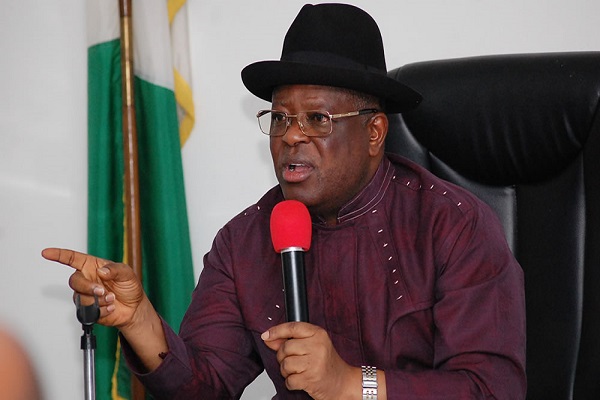The Minister of Works, Senator Engr. Nwaeze David Umahi, has received a comprehensive update on the ongoing construction of the Lagos-Abidjan Highway. The project, initiated by the Heads of States and Government of five ECOWAS member states, was the focal point of discussions during a recent briefing at the minister’s office in Abuja.
Led by the ECOWAS Commissioner for Infrastructure, Energy, and Digitalization, Engr. Sediko Douka, the ECOWAS delegation provided crucial insights into the status of highway construction. During the briefing, Minister Umahi stressed the need for a strategic approach to ensure efficiency and timely completion of the project. He proposed the sectionalization of the highway, considering the distinct characteristics of various areas along the corridor.
“To facilitate smooth progress and accelerate completion, the project should be divided into sections with a well-defined process in place. Certain sections may prove more viable than others,” remarked Minister Umahi.
Highlighting the significance of the highway project, Umahi stressed its potential to drive regional integration, stimulate commercial activities, and enhance social development among member states.
Additionally, he advocated for the use of concrete pavement on the Nigerian corridor, citing its numerous advantages, including a longer lifespan, resistance to heavy traffic loads, and low maintenance.
“A concrete road offers several advantages, including longevity, strength to withstand heavy traffic, and minimal maintenance. The Nigerian government has already embraced this approach,” emphasised Umahi.
Addressing the media, the ECOWAS Commissioner for Infrastructure, Mr. Sediko Douka, expressed gratitude to Minister Umahi for the audience. He emphasised the critical role of enhanced infrastructure development in achieving Africa’s economic integration, noting that the 1,028 km road project was initiated in 2013 by the Heads of State and Government of the Corridor Member States.
The steering committee overseeing the project, comprising the Ministers of Works of Corridor Member States and the Commissioner for Infrastructure of the ECOWAS Commission, plays a pivotal role in providing oversight guidance. The committee ensures the implementation of the project, with each minister reporting back to their respective Head of Government.
Engr. Malik Ashoke, Director of the Infrastructure Department at ECOWAS, provided additional updates, mentioning the completion and commissioning of the link bridge between Nigeria and Cameroon.
However, he noted the need for scanning machines and weigh bridges, requesting the Nigerian Minister of Works facilitate obtaining FG directives for the seamless clearance of this essential equipment from the wharf.



